|
11/29/2016 Two poems by j. lewisdeath as a naked woman came to me in an hour of despair said she would be my escort home fee paid in full, no tip required she pulled my hand to a breast the color of aged ivory cold, silky, and smooth not the pale, languid white of vampires' faces or the bloodless dainty bosoms of medieval portraits i was unmoved she lifted my gaze to her eyes not deep, dark pools of poet-lore but lively, sparkling emeralds as though she had just blown in from columbia, zambia or brazil fresh from taking her fill of broken-backed miners i did not blink she brushed her lips across mine smiled to show the seductive contrast of pearls against rubies spoke softly, sweetly in my terrified ears come into death let me be your first and last desire i forgot to breathe, briefly but i am old, and thoughtful no longer the fire-veined youth who would have leaped at the chance no, i simply whispered back you've got the wrong number i'm waiting for the ancient one black cloak, sharpened scythe no face to speak of that's the only death i care to follow chicago symphony the way he talked i was sure we were going to the symphony center where all the great music happens from the time he picked me up it was non-stop chatter about majors, minors, sevenths, and ninths first string, second string beautifully orchestrated plays pitches, slides, rests tags, short stops, runs, practice paying off in winning scores he went on about hits first, second, and third (the standard chord inversions) the whole thing coming home and i was really excited for an evening of music but there was a catch and i finally caught on as we pulled into the parking lot of wrigley field 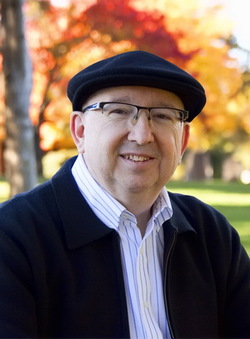 Bio: j.lewis is an internationally published poet, musician, and nurse practitioner. His poetry and music reflect the complexity of human interactions, sometimes drawing inspiration from his experience in healthcare. When he is not otherwise occupied, he is often on a kayak, exploring and photographing the waterways near his home in California. Singer, songwriter, and guitarist Courtney Hartman started playing guitar at the young age of eight, after having already spent several years on the fiddle and mandlin. Her early years were spent steeped in American Roots music, and today she has fused a diverse range of influences from Norman Blake to Bill Frisell, creating music that acknowledges and pays homage to her roots, while pushing beyond its defined boundaries. Courtney left her native Colorado for Boston, where she studied in the American Roots Music program at Berklee College of Music. It was there that she joined Della Mae, and began to grow as a songwriter, contributing songs to the group’s second and third albums. Her solid rhythm playing and melodic improvisations has brought her accolades from the guitar oriented press. She appeared on the cover of Acoustic Guitar’s 2014 30 under 30 issue where her flatpicking prowess was lauded as “Staggeringly good” by the editors and the Fretboard Journal heralded Courtney as “...easily one of the greatest flatpicking guitarist performing today.” Courtney now lives in Brooklyn and tours frequently, playing some two-hundred days a year, both at home in the states, and in countries as far off as Pakistan and Vietnam as part of the US State Department’s Music Exchange program; an experience that has had a profound impact not only on her music, but her world view. Her literary songwriting is filled with stories about changing relationships, life on the road, and—implausibly enough—a song that finds beauty and longing in jet lag. In addition to her solo work and touring with Della Mae, Courtney has worked with a range of musicians including Tom Petty and the Heartbreaker’s Mike Campbell, Buffy St. Marie and Hot Rize’s Bryan Sutton. Her solo project, Nothing We Say, was just released on Sept 30. AHC: What has this journey, this life in music been like for you, the highs and the lows, and what life lessons do you feel you've picked up along the way? Goodness, that's a big question. I haven't been here, doing this, for all that long, but it still feels like a big question. I feel so grateful to do what I do. I love it. I love making and playing and learning music, I love seeing our country and the world. What I have been learning lately is this... to observe and absorb, to put in the work and the diligence to create. It may feel foolish or frivolous or frustrating or frightening, maybe all of those things at once, but if it feels necessary, than it is. Those feelings will grow and fade and grow again. But you can find ways to work with them, to let them fuel what you do. AHC: What first drew you to music and what was your early musical environment like growing up? Were there pivotal songs for you then that just floored you the moment you heard them? My parents started taking me to violin lessons when I was three years old. I had two older sisters who started at the same time, they were six and eight years older than me. It didn't matter what they were doing, I wanted to be like them, wanted to keep up with them. In some sense, that may have motivated me as much as anything at the time. We always had instruments around the house, I picked up mandolin, and then guitar along the way. All of my siblings played and my parents did what they could to put us in musical places, be it festivals or concerts or friend circles. When I was about fifteen, I saw Doc Watson play. I sat right in the front row, he made me cry during his set but I didn't know why. Doc had a way of making each person in the audience feel as if there were a dear friend, as if he really cared about them. I think he did. Sitting there afterward, I remember thinking that somehow, someway I wanted to try to do that, to make people feel the way Doc made me feel when he played and sang that day. AHC: Do you remember the first song that you ever wrote? I wrote little songs as a kid, my mom taught us that. Everything we learned growing up had a song to go along with it. I could still sing you our "skip-counting" and geography songs. When I was twelve, I wrote a song and afterward I remember thinking, "I just wrote a real song!" I it was a love song (t's funny thinking back on my twelve-year old self) and I know the last line was "leave it just like it seems, even if it is a dream." AHC: Who are some of your musical inspirations? Are there certain albums or songs you couldn't live without? Of course, there are so many. A few albums that I've held close over the years are, Bonnie Raitt/Self-Titled Abum, Bill Frisell/Good Dog, Happy Man, Sarah Siskind/Say It Louder, John Prine/Fair and Square, Norman Blake and Tony Rice/Blake and Rice AHC: What do you think makes for a good song, as you're writing and composing, is there a sudden moment when you know you've found the right mix, that perfect angle of light, so to speak? I have no idea. Maybe you can't call it good song, bad song. Maybe the question is, did the song say what you wanted it to say, portray what it needed to portray, be it lyrical or instrumental. Yes, there are plenty of ways to analyze and break down a song. But there are some songs that I adore, and had I written them myself, I may have tossed them out as being "bad". In the end, those songs portray an emotion or image that I connected with, we all know the feeling. Those are the great songs. They're the ones that show a new side of themselves with every listen. AHC: Do you consider music to be a type of healing art, the perfect vehicle through which to translate a feeling, a state of rupture, hope lost and regained? As a listener of music I have this impression, I wonder, as the artist, the creator, do you have this feeling about the transformative power of song? Does the writing and creating of the song save you in the kinds of ways that it saves us, the listener? Absolutely, music is language without words, the perfect vehicle for emotion. Maybe it's too much to ask a song to be transformative, you can only write it, put the love and diligence into it, and then if it somehow heals or moves you maybe it will also heal or move the person who hears it. There are a few times I have experienced the rare moment of feeling like a vessel for a song, when it happens through you; in spite of you, not because of you. AHC: You've been to a lot of different countries as part of the US State Department’s Music Exchange program, what has that experience been like? I've now been to 15 countries with the US State Department. Those experiences have been formative of who I am now. To describe the experience in one vast sweep of a statement is impossible. However, I can say this... to see the power of music open doors and conversations and create connections, in places where people have rarely, if ever, interacted with Americans, and most likely have reason to dislike us, that shifts your worldview in a life-altering way. The world is so big, and yet, we're all human and similar in more ways than we know. I would highly encourage anyone considering the program to do it, we have so much to learn from the world, so much to share. AHC: When you set out to write an album of songs, how much does 'where the world is' in its current moment, culturally, politically, otherwise, influence the kinds of stories you set out to tell? As artists, be it writers or musicians or poets or painters, our job is to observe the world and pour it into our work. Georgia O'Keefe, looked closely at flowers, closer and longer than almost any of us have. And then she showed them to us, and the world is better because of her. John Prine sees the small details, the nooks and crannies of life and brings them to our attention, tears well up then we laugh as we listen. He's talking about simple things, be it dark or light, things we all relate to. We have a responsibility to hear and feel the darkness in the world, but also to show that the small beautiful things are still small and beautiful. When it comes down to it, all my favorite artists turn the mundane into the profound. AHC: I read this beautiful quote once which reads "music is not only the art of harmonious sounds; it is the expression of the world before representation", I wonder do you experience music in this way, as you create, write and compose your songs, do you have the feeling that there is something in the music that jumps ahead of you, so to speak, some ineffable mystery that you try to put your finger to the pulse of? That the song is a translation of a deep inner experience that is sometimes, maybe not always, hard to name or recognize outright? That is a beautiful quote. And absolutely, yes. That can be a hard thing to articulate. Sometimes you can't see the arch of an album or a song, even the underlying themes, until you are nearly finished with it. And there have been times when I don't realize what a song is really about until long after I've written. AHC: What are your favorite on-tour, on-the-road memories? Some of my favorite touring memories have been in foreign countries playing for children, whether that be in music schools or playgrounds or run-down coal-heated orphanages. There's really nothing like the purity of joy that music can put on a child's face. AHC: Do you have any words of advice or encouragement for other musicians and singer-songwriters out there who are trying to find their voice and their way in this world? Put your music out into the world, but not for validation. Don't seek the opinions or attention of your audience in order to understand if your work is true and good. No one can do that for you. Only you know the answers to those questions. We are the only ones who know if we've put in the hours, if we've dug deeply enough into ourselves. Do the work. No one else can do it for you. If you have an urge to write or play, it probably means you have something that needs saying, and the world won't be the same if you don't say it. Read (and re-read) these books at some point in your next few years: Letters to a Young Poet by Rilke Bird by Bird by Anne Lamott We have such an insanely vast wealth of knowledge available to us on the internet. Use youtube to learn from, set up skype or in-person lessons with your heroes. Find out who your heroes' heroes are and go listen to them. And lastly, play with people. Find friends to make music with. AHC: Do you have any new projects in motion you'd like to tell people about? A couple months ago I released an EP "Nothing We Say", my first solo project. There will be more to come (soon), God-willing. This winter, I am focused on writing for my next album and collaborating with folks in NYC. I am also working on a project to connect and learn from refugees here in the city. If you read this and have thoughts about how music can build and foster community, I am very interested in exploring that these days. Goes without saying, but you can keep up with my sounds and whereabouts at www.courtneyhartman.com. 11/28/2016 Megalomaniac by Tricia Marcella Cimeramegalomaniac maybe this is what we all need: one of his kind to teach us something. haven’t we all been waiting for him to show up in our dreams? isn’t it time for it to be our turn? now i know what my father’s czech village felt like in 1939; the kerchiefed women, the stoic men, the goats behind wooden gates. oh shit. well, let’s see what happens. 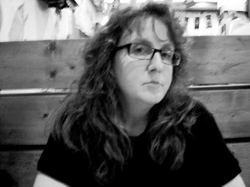 Bio: Tricia Marcella Cimera is a Midwestern poet with a worldview. Look for her work in these diverse places (some forthcoming): Buddhist Poetry Review,The Ekphrastic Review, Foliate Oak, Failed Haiku, I Am Not A Silent Poet, Mad Swirl, Silver Birch Press, Yellow Chair Review, Wild Plum and elsewhere. She has a micro collection of water-themed poems called THE SEA AND A RIVER on the Origami Poems Project website. Tricia believes there’s no place like her own backyard and has traveled the world (including Graceland). She lives with her husband and family of animals in Illinois / in a town called St. Charles / by a river named Fox.
Photograph by Kelly Avenson
Carley Baer's original blend of 'folk/pop with a ukulele twist' turns heads everywhere she goes. Currently based in Milwaukee, WI, she entertains audiences on guitar, ukulele, and accordion, dazzling the masses with her crystal-clear voice, high-energy performance, and coyly confident stage demeanor. Her latest release, Life Goes On After All, came about in the dark of night. The album features a combination of live and MIDI instruments, resulting in new and exciting sounds not often heard from this acoustic folksinger. Carley’s true power lies in her live performances, where she's been described as 'captivating' and 'charismatic', with one attendee proclaiming, 'It's impossible to walk away from one of her performances without a smile on your face.' AHC: What has this journey in music, so far, been like for you, the highs and the lows, and what sort of life lessons do you feel you've picked up along the way? It's been an adventure, that's for sure. I started embarking on my musical journey right around the time that the internet was becoming a prominent tool for independent musicians, and the phrase "changing landscape" has been a constant in my life ever since. In some ways, it has been difficult to navigate; I find myself occasionally envious of my friends who are on a more traditional, laid-out career path. In other ways, it's been hugely liberating to be able to make my own rules and find my own way forward. I've learned how to roll with just about anything that comes my way, and that skill is invaluable to a career in music but also to life in general. AHC: What first drew you to music and what was your early musical environment like growing up? Were there pivotal songs for you then that just floored you the moment you heard them? I grew up in a musical household. My dad is a folk musician, my mom is an avid consumer of music (you should see her vinyl collection). Many of my parents' friends are also musicians, and they'd regularly get together and jam while us kids would run around and play. So I was always around music growing up. Things like the Beatles, Grateful Dead, Frank Zappa, Led Zeppelin, were all part of the soundtrack to my formative years. AHC: Do you remember the first song that you ever wrote? Or that first moment when you picked up a pen and realized that you could create whole worlds just by putting it to paper? I do remember, and so does my whole family-- they'll never let me forget. It was called "Moonbeams," and I was maybe five years old, and I wrote it on a little Casio SK-1 sampling keyboard. I don't remember having a dawning moment of like, "Oh, this is how songs get made, I could be a songwriter!" I think my attitude back then was that music was just another form of play, like dolls or tag. AHC: Which musicians have you learned the most from? Or writers, artists, filmmakers etc? I've definitely borrowed a few pages from Ani Difranco's playbook. She was my first real inspiration; I'd watch her Render documentary on repeat any time I was feeling unsure about my chosen path. I've also learned volumes from hanging out with pat mAcdonald in Sturgeon Bay, WI, where the Holiday Music Motel hosts weeklong songwriting festivals three times a year (http://holidaymusicmotel.com). I like to listen to all aspects of a song but if the lyrics are really clever, I'm sold. Pat's one of the cleverest lyricists I've ever had the pleasure to know, and his influence has definitely left an impact on me. An extension of that is learning from all the other songwriters who attend those festivals. Each of them brings their own brand of magic to the table, and they've each taught me something that I've been able to incorporate into my own process. It's hard to put into words just how much I've learned from everyone there. AHC: What do you think makes for a good song, as you're writing and composing, is there a sudden moment when you know you've found the right mix, that perfect angle of light, so to speak? Well on the one hand, there's that phrase about when something "rings true." When something rings, it resonates, and when I sense that resonance, I know I'm on an inspired track. On the other hand, I write a lot of songs on deadlines, and inspiration doesn't always see fit to join the party, so I'm left to slog through what can be a very laborious process. And sometimes those songs, the ones that were about as enjoyable to extract as an impacted molar might be, are the ones that get the best response from an audience, so I guess the answer to your question is, I have no idea. I feel like I know a good song when I come across one, but mostly I just write and hope people like it. AHC: Do you consider music to be a type of healing art, the perfect vehicle through which to translate a feeling, a state of rupture, hope lost and regained? Does the writing and creating of the song save you in the kinds of ways that it saves us, the listener? Oh, absolutely. I know many musicians, myself included, who treat music as a cheaper alternative to therapy. You can address so much with music, and get an effect that you can't really duplicate with speech or prose writing. Pain, endurance, hope in the midst of despair, it all becomes more palatable when it's set to a melody. You have a bad day, you put on some music that helps you work through those emotions. Someone upsets you, you write a song about it and give those feelings somewhere to go that's a little more productive and creatively fulfilling than telling that person off. Music is magic. It's like the sugar that makes the medicine go down. AHC: What are your fondest musical memories? In your house? In your neighborhood or town? On-tour, on-the-road? There are so many. I remember my dad teaching me how to sing harmonies when I was very young, and I remember my mom singing Paul Simon's "Under African Skies" to my then-baby sister. More recently, I've been traveling a lot: France, Germany, Hungary, Croatia, all as part of these subscription-based songwriting projects I've been doing. When I was in Paris, my friend Eric McFadden just happened to be playing a show nearby, so I went to see him; he had no idea I was in town. That was a really fun moment. Another songwriter friend of mine, Elke Robitaille, joined me in Paris and from there we went to Munich for my first time. Music has allowed me to go to some really cool places and make amazing memories with great people. I'll always remember that. AHC: When you set out to write an album of songs, how much does 'where the world is' in its current moment, culturally, politically, otherwise, influence the kinds of stories you set out to tell? Well, first I must admit that I have never set out to write an album of songs. My albums so far have been collections of already-written songs that were in need of a home, songs that I felt deserved an audience but were not necessarily part of an overarching commentary on the current state of the world. Of the songs I've written that have ended up on albums, I think the state of the world seeps into the material in subtle ways. It shapes the way I see things. It colors my moods. I try to dress it up in allegory and metaphor, because there's always the danger of getting "preachy" which I try to avoid at all costs. But it's in there, if you look at it right. AHC: With the traditional ways that we listen to music rapidly changing, does it affect how you write and put together an album? Too often people are downloading and engaging with singular songs rather than albums as on ordered and thematic canvas, do you regret that your work may not be received in the way it was intended or created? There's that "changing landscape" thing again. I'm personally not really bothered by that, although I do appreciate that musicians who approach things more thematically might be. I feel like as long as people are listening and enjoying themselves, however they choose to experience the music is fine with me. AHC: Do you have any words of advice for other musicians and singer-songwriters or anyone who is struggling to create something of value out there, who are just starting out and trying to find their voice and their way in this world? What are the kinds of things that you tell yourself when you begin to have doubts or are struggling with the creative process? Your inner critic is a very important ally in the quest for the perfect song. However, one of the best things you can learn to do is silence that critic and take chances that you might not be comfortable taking. Sometimes it will lead to disappointment, but I've found that it more often leads to strange and exciting new places that allow you to grow as a writer, as a musician, and as a human being. Set deadlines and stick to them-- oh, how many millions of times have we all heard that advice, but it's really true. When you don't give yourself time to over-criticize your work, when you trust your skills and instincts, you might be surprised by what you can create. And always remember, it's only a song. AHC: Do you have any new projects you'd like to mention? I am up to my ears in new projects. I'm currently doing a boutique song commission project for the holidays, called Notes From The Heart, where people can order songs to be written for their loved ones. Information on that is at http://www.carleybear.com/notes-from-the-heart/. My upcoming album, Travelogue, is a compilation of songs I've written on my two songwriting adventures, the Paris Project and the Budapest Project. I'm aiming to release Travelogue in early 2017. I'm also organizing a project in response to the emotional turmoil unearthed by this most recent U.S. election, although I can't say much on that just yet. Anyone who's interested in learning more about everything I'm up to can follow along at www.carleybaer.com. The undefinable state of what was and is to come Prophecies of Tom Waits Somehow indescribable One slight; one night; once among the neon and the bar room noise The chaos Seemed to be alien vaguely relative, somehow familiar. The action something invisible something unreal Although important for need of mankind The need for when all else has drained Down, down, away, away, away.… All their eyes were distracted by The neon, billboards, and garbage blowing about. Now forgotten. Yesterday wants - now gone bellies empty Unrequired – unrequited Strangely it shuffled by, A stranger did something smoothing The sculpture of another life from another world. “Pick up your pen and begin write until the muse visits the poem written in your head is more pure than on paper. You’ve no need for what ‘they’ need you have something far, far better and more pure.” Bio: Jonathan Beale has poems published in print and online around the world his work can be found in such books as ‘Drowning’ and ‘The Poet as Sociopath’ (Scar publications). His first collection of poetry ‘The Destinations of Raxiera’ is published by Hammer & Anvil. http://www.amazon.co.uk/Destinations-Raxiera-Jonathan-Beale-ebook/dp/B018F6GWQ6/ref=sr_1_1?s=digital-text&ie=UTF8&qid=1452199641&sr=1-1&keywords=jonathan+beale Recent work published in Dissident Voices, Red Fez, and Sheepshead Review. He lives in deepest Surrey. "It's no secret that I reek of the old world." Such poetic lyricism runs deep through the songs of Rae Fitzgerald. The Columbia, Missouri singer-songwriter's latest release "Popular Songs for Wholesome Families" is a tapestry both rich in sound and brave in scope, a flourish of originality and earnestness, resolute, determined, exploratory. "What does it mean to quit the machine" one of the many questions asked on this unique and vibrant album. Here Rae talks musical memories, DIY spaces, the healing potential of songs to free us up and help us move on, and the common threads that make all of our stories and experiences ones worth telling. AHC: What has this journey in music, so far, been like for you, the highs and the lows, and what sort of life lessons do you feel you've picked up along the way? Performing music was always emotionally rewarding, from the first time I ever played an open mic at 17. It's still really rewarding, but in a different way. It used to feel like an expulsion of feeling, and now (whether because of the material or just the life stage I'm in) it's more like a recounting/analysis of events that have transpired. Sometimes when I'm on stage, I feel like I'm trying to explain to the audience how I got to this place in my life, what made me the person I am. The highs are the creation part--when I'm sitting on the floor in front of a keyboard or showing my bandmates a song for the first time. It's also a "high" to really connect with a crowd from the stage and feel like I'm injecting them with a particularly emotional experience. Any musical lows I've experienced revolve around trying to get the music out there more. These days, there's a lot of freedom for DIY musicians. And there are also a sobering amount of difficulties when it comes to trying to make a living off of art. The two could work perfectly together, but there's not always a way to keep them balanced. AHC: What first drew you to music and what was your early musical environment like growing up? Were there pivotal songs for you then that just floored you the moment you heard them? I grew up in an extremely Christian household, and I was only allowed to listen to Christian music as a child. I always thought the hymn "Rock of Ages" was pretty epic and heavy. I liked the imagery of the death scene in juxtaposition with the narrator's hope for redemption. But I didn't have any eye-opening musical moments until I lost my religion at about 17. At 17, I started attending my first public, non-Christian school, and thanks to a hip group of friends, I was exposed to music that still ranks among my favorite. I started delving into Cat Power, Elliott Smith, Sufjan Stevens and Bright Eyes. I got a hold of the Bright Eyes album "I'm Wide Awake It's Morning," and it blew my mind. I listened to "Old Soul Song (For the New World Order) about a thousand times. It was so sad, so of-the-times, so perfect. AHC: Do you remember the first song that you ever wrote? Or that first moment when you picked up a pen and realized that you could create whole worlds just by putting it to paper? I've written poetry as long as I can remember. But I didn't put it to song until 17. I'd had an acoustic guitar for years, but I'd never picked it up. I had absolutely no interest in learning covers. The first song I learned was the first one I wrote. I was surprised how easily it happened. It wasn't a struggle; it just poured out. The biggest struggle was training my fingers to make the chords. I've written so much since then, entire albums of demos and full songs that have never seen light. AHC: Which musicians have you learned the most from? Or writers, artists, filmmakers etc? As far as lyric writers, which is what I am before anything else, I guess, Conor Oberst had a profound effect on me. I know he's a divisive character in the indie world, and most people either hate him or love him. But most people have to admit that every word he sings adds to a sequence that fits together perfectly. He's really wordy, of course. My earlier work was extremely wordy. Since then, I've been trying to pare down my lyrics so that each word is forced to be more intentional. I think Sharon van Etten is really great at that. As far as musicians whose composition style has inspired me, Cat Power's minimalistic orchestration is right up my alley. Even the simplest of her songs is packed with emotion. AHC: What do you think makes for a good song, as you're writing and composing, is there a sudden moment when you know you've found the right mix, that perfect angle of light, so to speak? I don't think I've ever recorded a song exactly the way I first heard it in my head. Bits get lost in translation; they get lost when other instruments are added; they get drowned out with other ideas of production. As long as the idea can still be seen after it's been dressed up, I think it's honest. The perfect angle for me is that intersection between familiarity, a pleasurable aesthetic and a universal realization. AHC: Do you consider music to be a type of healing art, the perfect vehicle through which to translate a feeling, a state of rupture, hope lost and regained? Does the writing and creating of the song save you in the kinds of ways that it saves us, the listener? It definitely does. Every time I can put an emotional trauma or an ecstatic realization or a moment of pure joy into a song and on a record, it frees me up to move on. It's like it almost allows me to clear up space on my mental hard drive. I can delete it, because it's always on the document (the record) for me to revisit if need be. It sort of frees me up to forget a lot of things and maybe contributes to some airhead-ed-ness. AHC: What are your fondest musical memories? In your house? In your neighborhood or town? On-tour, on-the-road? Some of my best musical memories are actually in the studio. I love recording. I'm a procrastinator, and I get some of my best ideas at the last minute. I've played some larger shows with nationally touring acts, but they're never my favorite. I love DIY spaces and living room shows where everything is bare and everyone is there just to have an experience. AHC: Your album titles are all very unique and they also have a sort of common thread, in the sense that they each seem to carry a kind of critical political weight, Of War & Water, Quitting The Machine and Popular Songs for Wholesome Families, was this intentional, having each of these album titles bare down on certain themes up front? When you set out to write an album of songs, how much does 'where the world is' in its current moment, culturally, politically, otherwise, influence the kinds of stories you set out to tell? Up to this point, I haven't intentionally written about the social and political climate as much as they've just been captured by the songs. I've always thought of my songs as time capsules, and the political climate really affects me, so it inevitably ends up being illustrated in my work. However, I'm currently working on an EP that's shaping up to be more politically motivated than the others. I don't have a name for it yet, but it will be out this winter. AHC: With the traditional ways that we listen to music rapidly changing, does it affect how you write and put together an album? Too often people are downloading and engaging with singular songs rather than albums as on ordered and thematic canvas, do you regret that your work may not be received in the way it was intended or created? I definitely do. I wish our listening culture was interested in hearing the whole album, front to back, before skipping to tracks two and three. But I'm aware of it, and I planned my last album accordingly. I know that people rarely dig into my work as deeply as the lyrics intend for them to, but it makes the avid, deep-cuts listener even more precious to me. AHC: Do you have any words of advice for other musicians and singer-songwriters or anyone who is struggling to create something of value out there, who are just starting out and trying to find their voice and their way in this wold? What are the kinds of things that you tell yourself when you begin to have doubts or are struggling with the creative process? Anyone can be an artist. Whether she becomes one or not rests in whether or not she discovers how to present it. With so many experiences in the world, the only ones we're really adept at describing are our own. I think a good way to begin is to describe an event, memory or image with as much detail as possible and then attempt to extend it to a universal truth. Though our day-to-day experiences vary greatly, they each contain threads of the human experience. That's what I think is worth capturing. AHC: Do you have any new projects you'd like to mention? Yes! I'm working on a five-song EP with my four bandmates, and it's really pushing the boundaries of "singer-songwriter." The sound palate is a lot different than my previous work; it's weirder, more full-band-centric, and very political. It doesn't have a name yet, and there's no official release date, but anyone interested should look for it this winter on Bandcamp.com. For more visit raefitzgerald.bandcamp.com/ AMERICA 2016: In Protest of Donald Trump Silent keepers of the sacred flame mute the voice of protest flood the pastel marketplace with stale rhetorical bullshit Build flaming Babel towers with mortar of seared infants bricks “made in Afghanistan” foundation poured with Imperialism (thinly disguised as benevolence) Planet Earth, the message is crudely clear we must gather wooden sabots cast them with vigor into the war machine stopping destructive gestations with our bodies and hearts Until peace permeates senseless chaos our bodies are our sole currency steel actions carry unspoken words Tomorrow peace may enter unarmed today dissent must walk unafraid. Bio: Judy Shepps Battle has been writing poems long before she became a psychotherapist and sociology professor at Rutgers University. Widely published both in the USA and abroad during the Sixties and Seventies, she deferred publishing to concentrate on career and family. Fortunately her muse was tenacious and she continued to write during the next three decades filling a file cabinet with scrawled and typewritten poems that are now being organized into chapbooks and individual submissions. The material submitted for publication represents her return to active participation in the writing community. She can't think of a better way to spend her retirement. Her poems have been accepted in a variety of publications including Ascent Aspirations; Barnwood Press; Battered Suitcase; Caper Literary Journal; EpiphanyMagazine; Joyful; Message in a Bottle Poetry Magazine; Raleigh Review; Rusty Truck; and Short, Fast and Deadly 11/25/2016 Artwork by Steven TutinoArtist Statement I am so free. I love to create. My life is painting and painting is my life. My life is colour and colourful is my life. I love to exist and create. I am so free. Everything is so free within me and I am no longer dead. I don’t want this to leave me even though I know it will. I am elevated beyond the highest regard for myself. I am princely, comely shaped. I am formless like paint on a canvas and I have marked my spirit onto the canvas as a spiritual testament. I can relax. I can breathe. I love to create and I am so free. Everything in my mind has vanquished and is extinguished and I am a free born creature, primitive, elemental, experiential consciousness immersed in everything experience senses data love sensual beauty of nature creation allegory myth testimony. Loving you is love of all things. I am a cloud of wandering. I am unknown yet not lost. I am so primitive. I am fire and water. I am mythical, abundant, purity, profound and I am high and I want to take the next step towards something higher. This was that step and I love to create. I am free. Art is freedom. Freedom is the nothingness out of which art is given existence, shapely, ornamental, formless as well yet still there, something colourful disordered yet harmonious. Painting is storytelling; can we say the psychology of storytelling? Through representation, the painting gives to you the inner state of my state, the inner matter and secretion and tides and waves and ebb and flow of my heart. My inner freedom. My inner galaxy and cosmos. I have survived. My life is prolonged. My life is freedom, joy, certainty and bliss. Meaning everywhere and I constructed it myself through the unleashing of every particle of myself onto the canvas. My mind is naked, I am naked, bare and vulnerable but I am not ashamed. Everything natural, everything the way it should be. I’m here and at peace. So much love, fire that is now appeased. For once in a long time I actually feel appeased. Stable. Rooted yet free flowing. Not a being and not a thing. 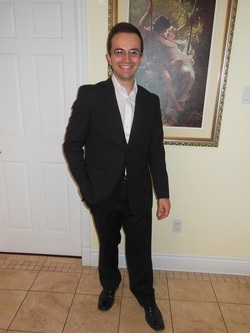 Bio: Steven Tutino is currently an undergraduate at Concordia University in Honours English Literature with an additional major in Theology. His poetry has appeared in Concordia University’s Journal of Interdisciplinary Studies in Sexuality, The Paragon Journal and Halcyon Days. His artwork has appeared in Word in the World, The Paragon Journal, The Minetta Review, Beautiful Minds Magazine, GFT Press: Ground Fresh Thursday, Michael Jacobson’s The New-Post Literate, The Omnicult, November Bees, Tree House Arts, South Florida Poetry Review and is set to appear in Second Star Magazine. Steven currently resides in Montreal, Quebec. 11/23/2016 Three Poems by John Grochalskibad luck spot one guy is drawing a flower crushing green and yellow chalk on the pavement watching him we walk through a chalk sign that says bad luck spot we have to go back, i tell my wife you have to walk through it backwards why? she asks to undo the curse, of course she says, when did you become so superstitious? when they found cancer in my thirty-seven year old wife’s breast, i tell her we stop walking we watch as the man crushes more chalk for his flower in the most basic sense he’s destroying something in order to create beauty in my way i’m trying to take a nightmare back i didn’t believe that could happen, i continue who in the hell knows what else i’m wrong about? jesus? unicorns? ghosts? compassionate conservatism? american exceptionalism? you really want me to walk backwards through that? my wife says we’ve enough bad luck for one lifetime, i say it’s time for the tides to turn my wife looks around union square is packed with the assorted mix of everyone who make me want to move away from and fall in love with new york city every day this is stupid, she says so is cancer, i tell her we walk back to the spot on the pavement some people are walking right through the bad luck spot and others are walking around it the guy drawing the flower takes a break to wipe the crushed chalk from off of his hands he’s watching everyone i wonder if he wrote this sign too i’m only doing this for you, my wife says then she starts walking backward through the bad luck spot laughing like a child with the sun behind her and i can feel the magic working as i stand there smiling counting all of our old blessings delivered by this alchemy at work charles bridge at times i try to hold you out of my heart you’re too heavy for it, baby at times i think of the years that have passed between us and then to save my composure i don’t believe it or not i like the simple things ice cream cold beer the sun in its early moments your hand as we cross the charles bridge fooling them all we’re unburdened. driving through pittsburgh in june heading back to the suburbs to my parent’s home from kris and anna’s place where there was beer and poet talk driving through pittsburgh in june you and i like we used to do all of the time when we lived there when it was home all of those many years ago three days before the doctors in brooklyn would find the cancer in your breast i wish maybe we’d taken it slower not been in such a hurry to go back to my parent’s maybe gone around to some of the old places that we used to hang out the streets that we’d filled with love and a lot of other things instead of me having you make wrong turns because i no longer really knew the city of my birth we could’ve had a late bite at that old chinese restaurant that we hated and loved so much lingered outside your old apartment the way i did right before our first date done something starry-eyed in the city where our romance bloomed then turned solid oh honeybee if only we had known 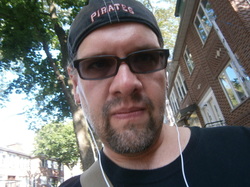 Bio: John Grochalski is the author of The Noose Doesn’t Get Any Looser After You Punch Out (Six Gallery Press 2008), Glass City (Low Ghost Press, 2010), In The Year of Everything Dying (Camel Saloon, 2012), Starting with the Last Name Grochalski (Coleridge Street Books, 2014), and the novels, The Librarian (Six Gallery Press 2013), and Wine Clerk (Six Gallery Press 2016). Grochalski currently lives in Brooklyn, New York, where the garbage can smell like roses if you wish on it hard enough. |
AuthorWrite something about yourself. No need to be fancy, just an overview. Archives
April 2024
Categories |
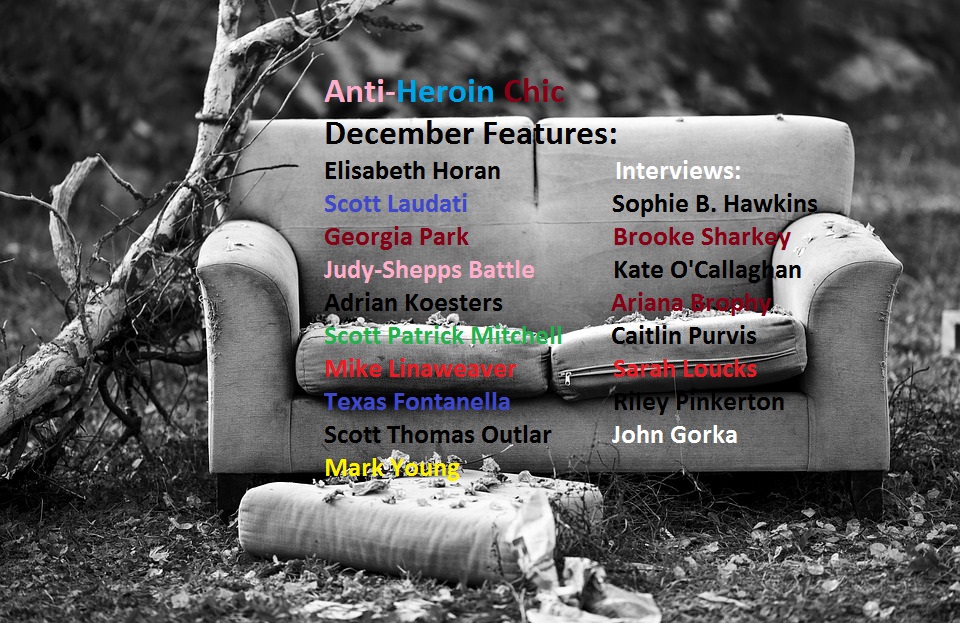
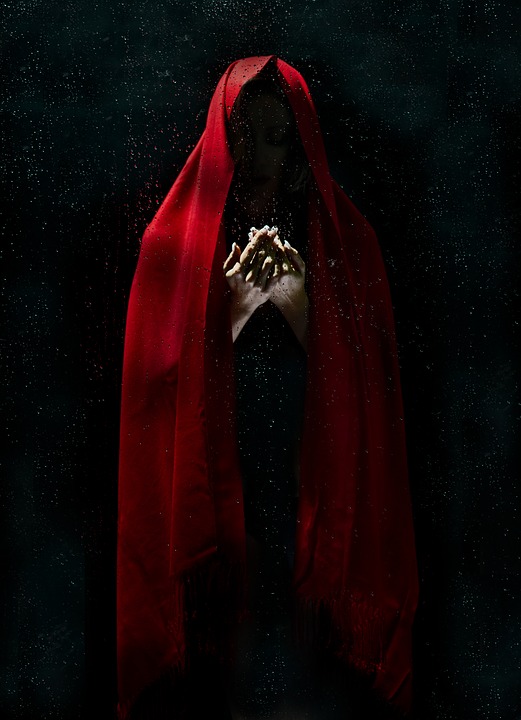
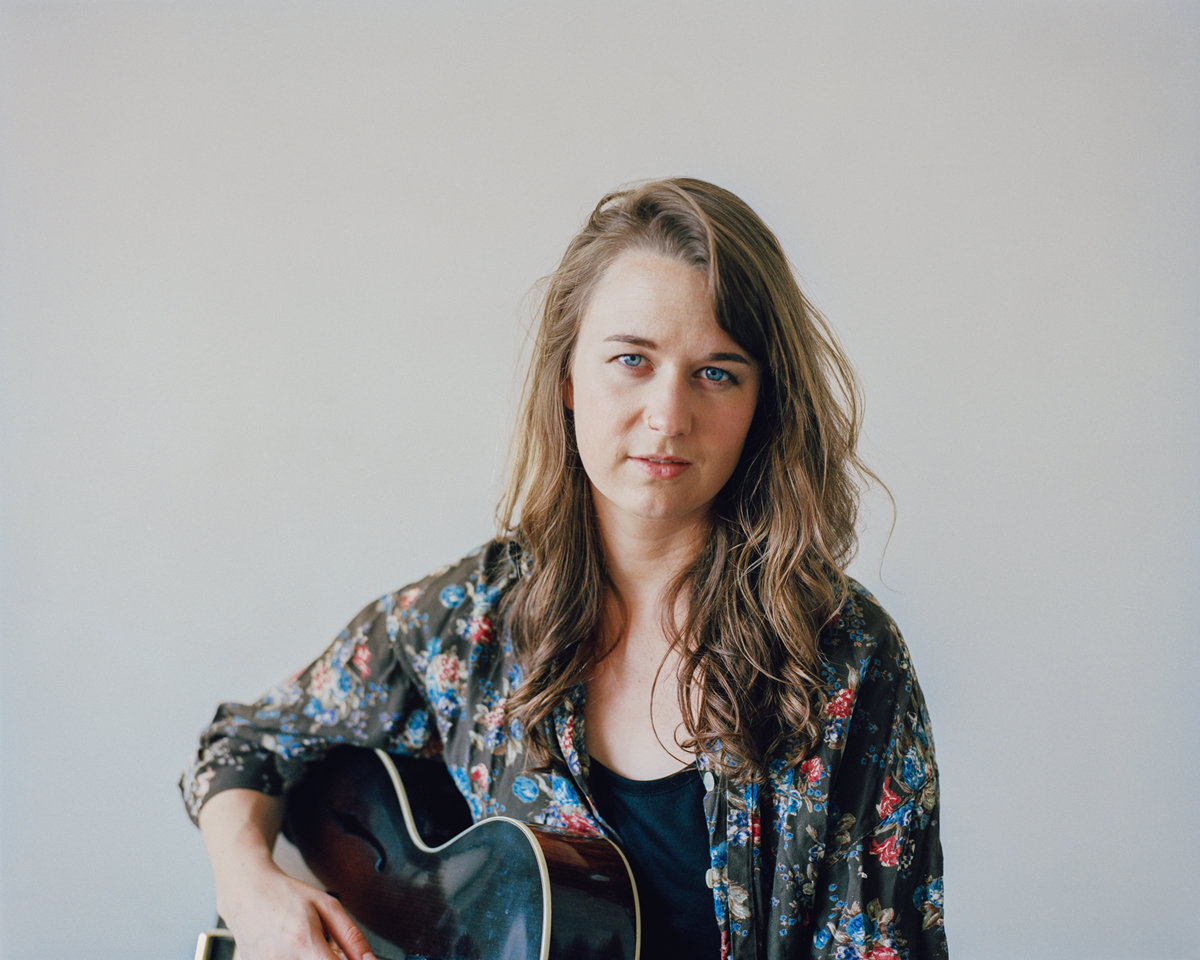
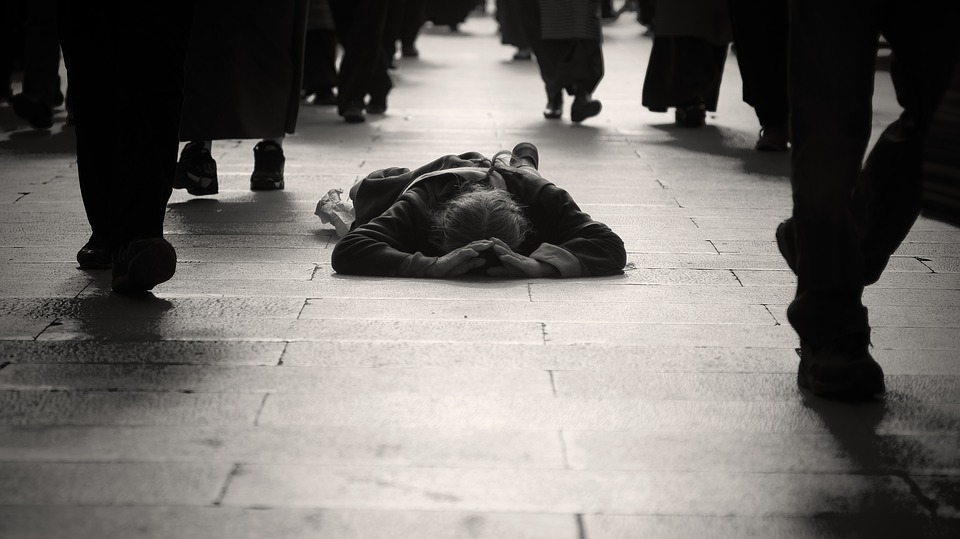
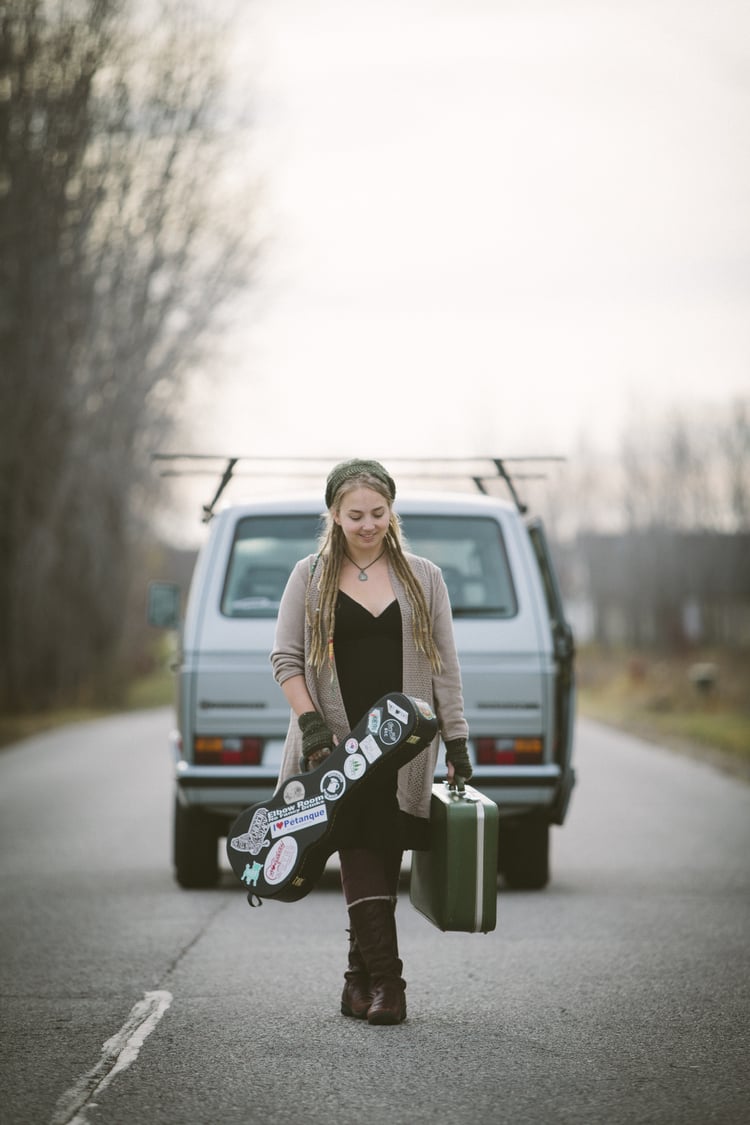
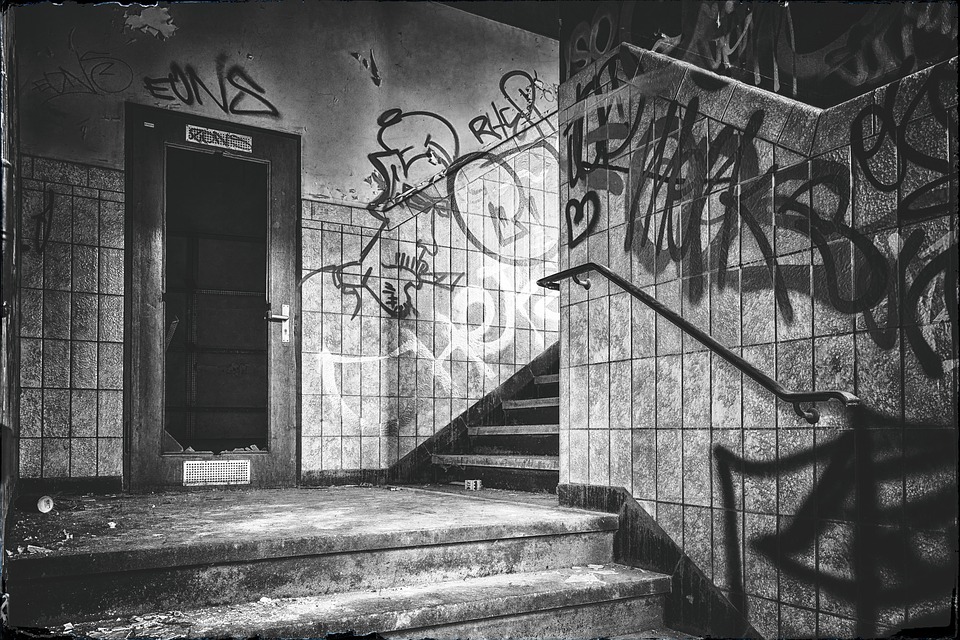
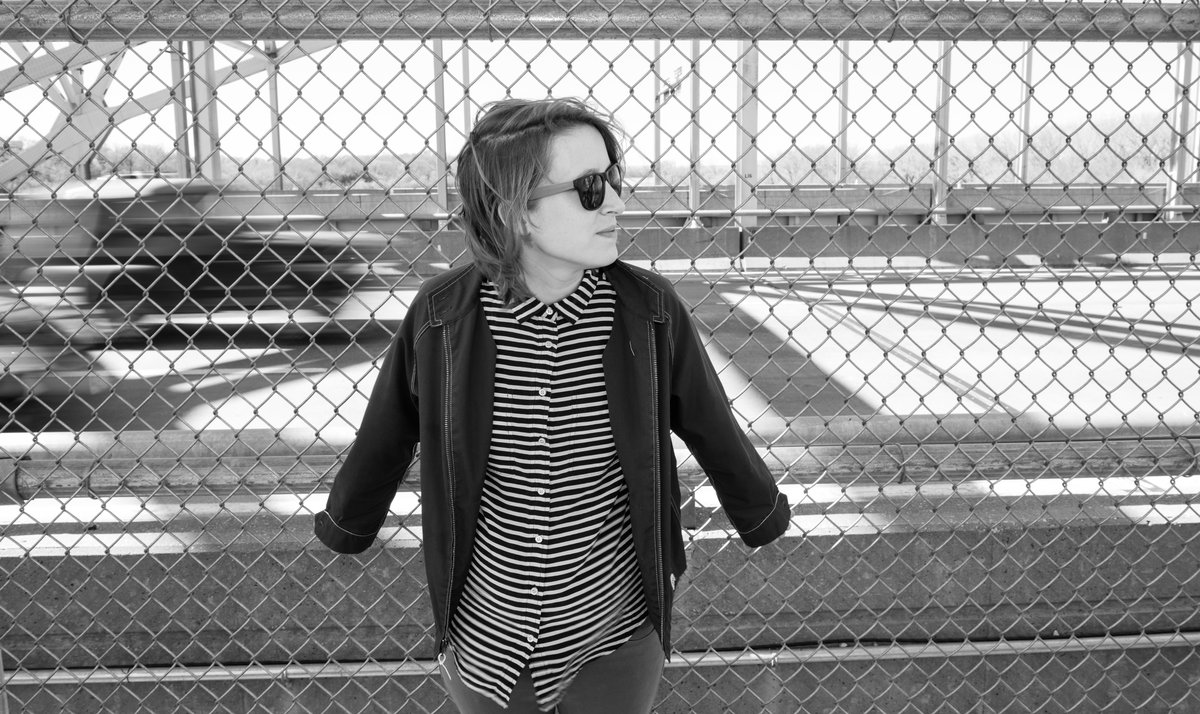
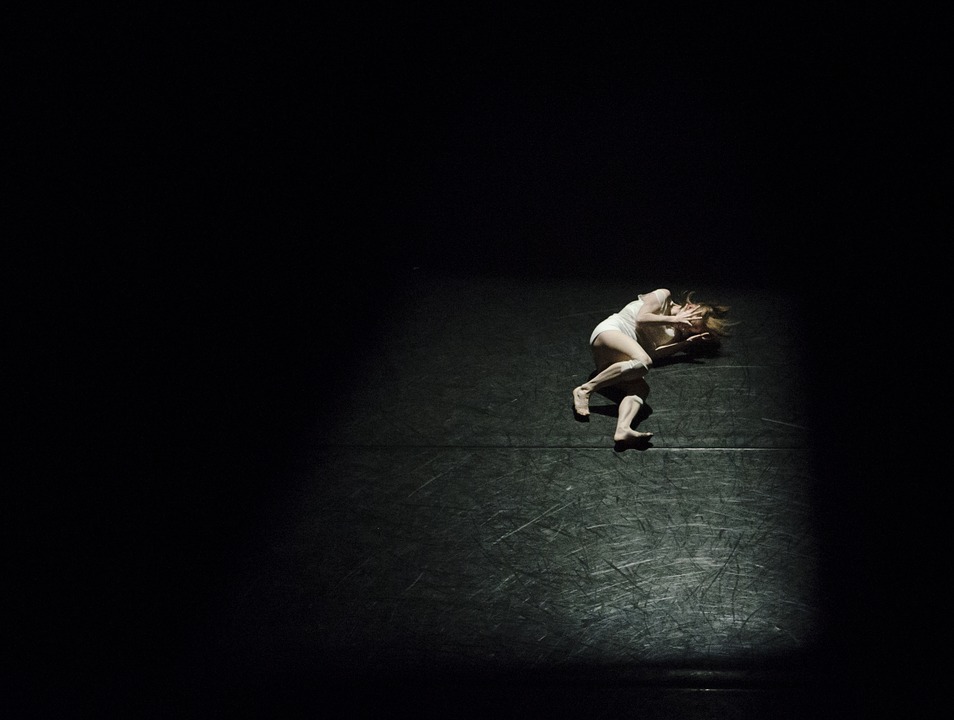
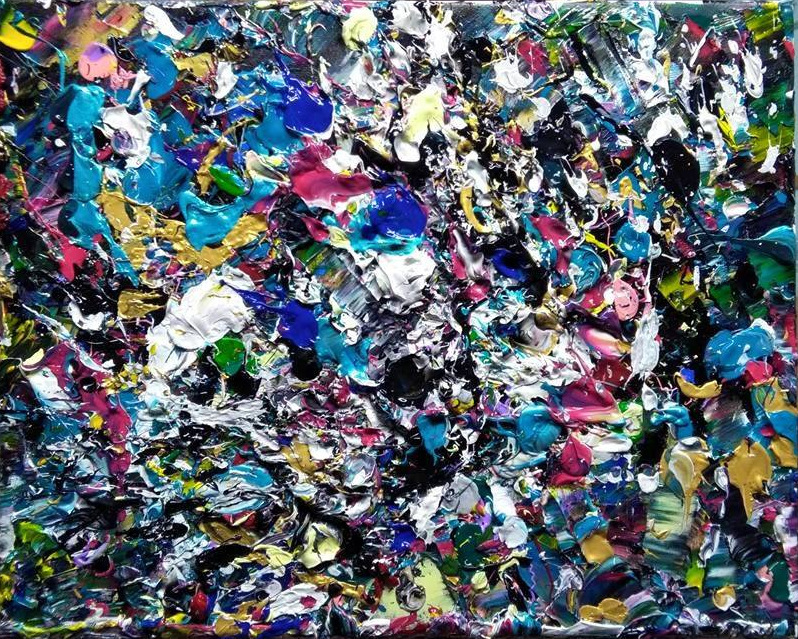
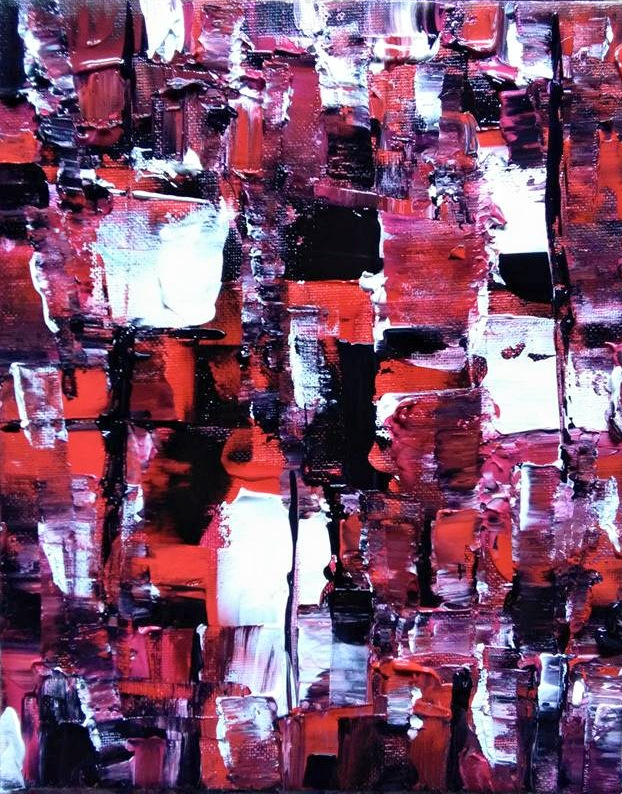
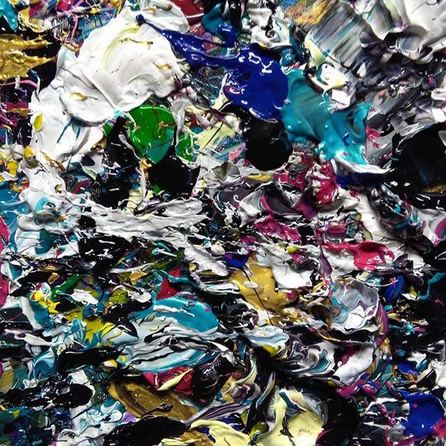
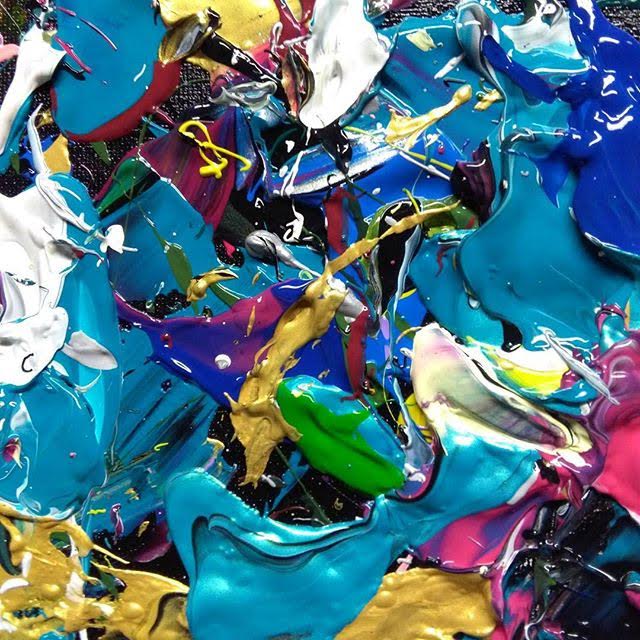
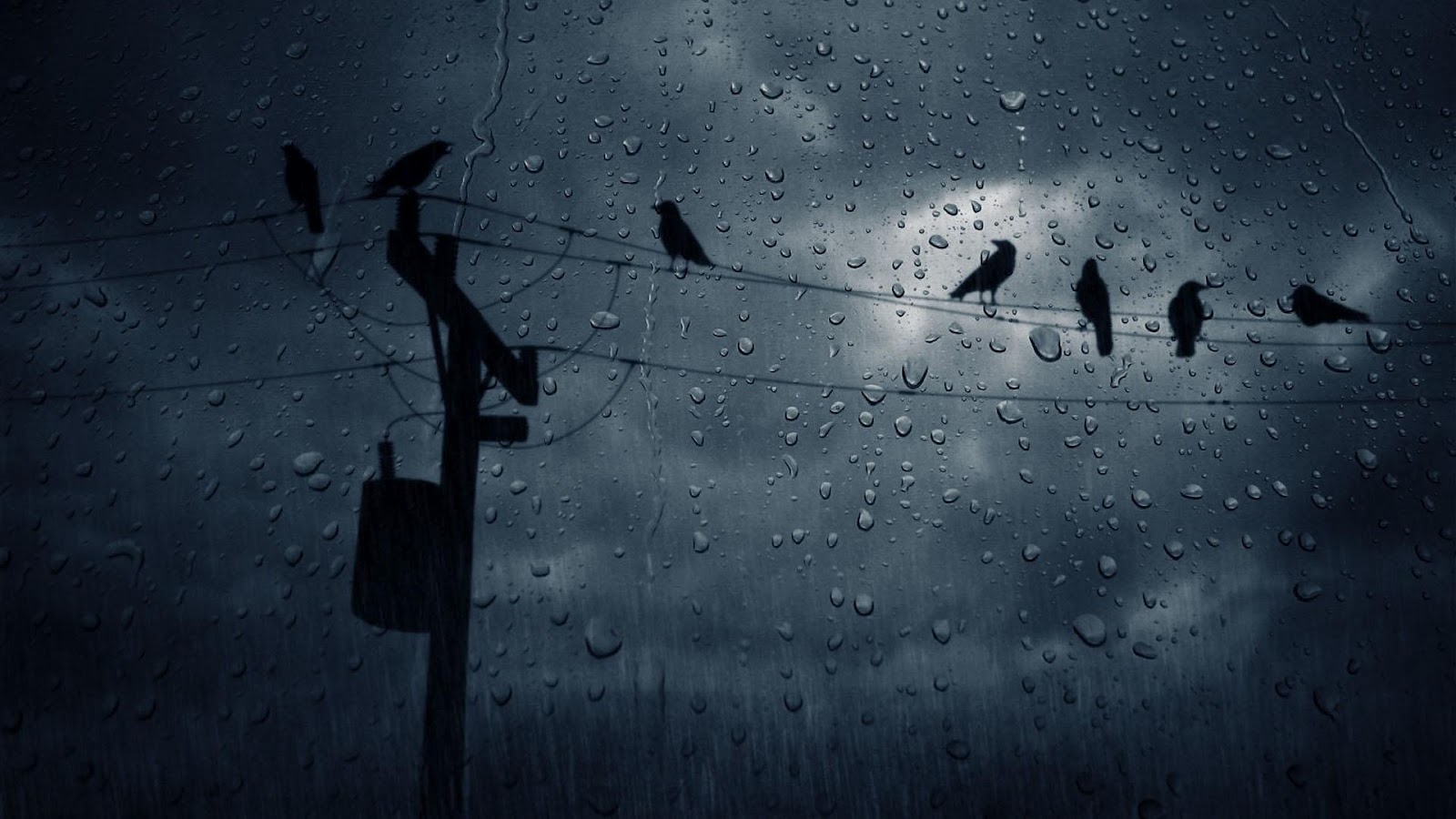
 RSS Feed
RSS Feed
